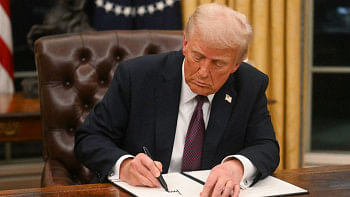Why is National Logistics Policy important for Bangladesh?

The National Logistics Policy for Bangladesh can play a pivotal role in developing a world-class, technology-driven, cost-optimised and time-efficient logistics ecosystem.
With its strategic position within South Asia, Bangladesh could establish itself as a central nexus for road, sea, and air transportation through the well-developed and comprehensive logistics policy, which has the potential to enhancing local and international trade and investment competitiveness.
Bangladesh aims to achieve an upper middle-income status by 2030 followed by high income status by 2041. To reach this ambitious goal, Bangladesh requires seamless trade connectivity, robust infrastructure, and increased export and logistics efficiency.
Logistics is a vast, complicated, and multidimensional space. It comprises all modes of freight transportation and related infrastructure, ports, land ports, storage, and warehousing facilities, as well as third-party logistics services, such as freight forwarders. Despite this, the logistics sector of Bangladesh existed without any common framework until recently, making the sector haphazard, costly, and without efficient coordination.
The new logistics policy providing a national framework and a national vision comes with the promise of making the logistics sector more efficient, transparent, and hassle-free to induce robust economic growth.
A collaborative effort among various stakeholders from the private and public sector, the National Logistics Policy 2024 is a testament to home-grown and inclusive policy making. Effective leadership and timely coordination by the Prime Minister's Office (PMO), and active collaboration with stakeholders helped in gaining a comprehensive understanding of the challenges and opportunities within the logistics sector.
Given that Bangladesh is an export-oriented economy, the National Logistics Policy has an important role to play in improving the logistics infrastructure and achieving high export targets. As Bangladesh transits from its least-developed country (LDC) status, the erosion of the duty-free regime in the European Union, the country's largest export destination, will increase the cost of exports to the EU by 8.16 percent and may make Bangladesh's products less appealing.
However, the cost reduction through an efficient logistics sector can help Bangladesh retain its export competitiveness post-LDC graduation. The World Bank found that the cost of logistics in Bangladesh is between 4.5 percent and 48 percent across different sectors, exceeding those of other trading partners and neighbouring countries.
The new logistics policy has the potential to bring down time and cost of trade, facilitating a sophisticated logistics sector that will boost Bangladesh's ability to tackle forthcoming tariff-imposition post-LDC era and maintaining global competitiveness.
The formulation of the policy clearly addresses the needs of the businesses which were long overdue. A well-developed logistics sector through successful implementation of the policy has the potential for turning Bangladesh into a global logistics hub and boost exports significantly.
A World Bank analysis indicates that by reducing the logistics expenses by 1 percent, it is estimated that the export demand for Bangladeshi goods could rise by up to 7.4 percent. Other initiatives, such as raising the minimum speed to 40km/hr and reducing the dwell times at ports by one day can increase the exports by 3.7 percent and 7.4 percent, respectively.
The key activities for implementing the policy include establishing multidimensional logistics hubs, economic zones, international corridors, and seaports, land ports, river ports and airports. Implementation of the policy will also require facilitating private participation in logistics infrastructure and services, effective coordination among the regulatory bodies, government-private sector collaboration, and user-friendly policy development for swift border clearance.
There is no doubt that a strong logistics infrastructure is a gateway for Bangladesh to develop itself as a vibrant, high-income nation. While the formulation of the National Logistics Policy 2024 is clearly a milestone for the logistics industry, it needs to be well-executed for it to be a game-changer.
The author is chairman of Policy Exchange Bangladesh.


 For all latest news, follow The Daily Star's Google News channel.
For all latest news, follow The Daily Star's Google News channel. 



Comments